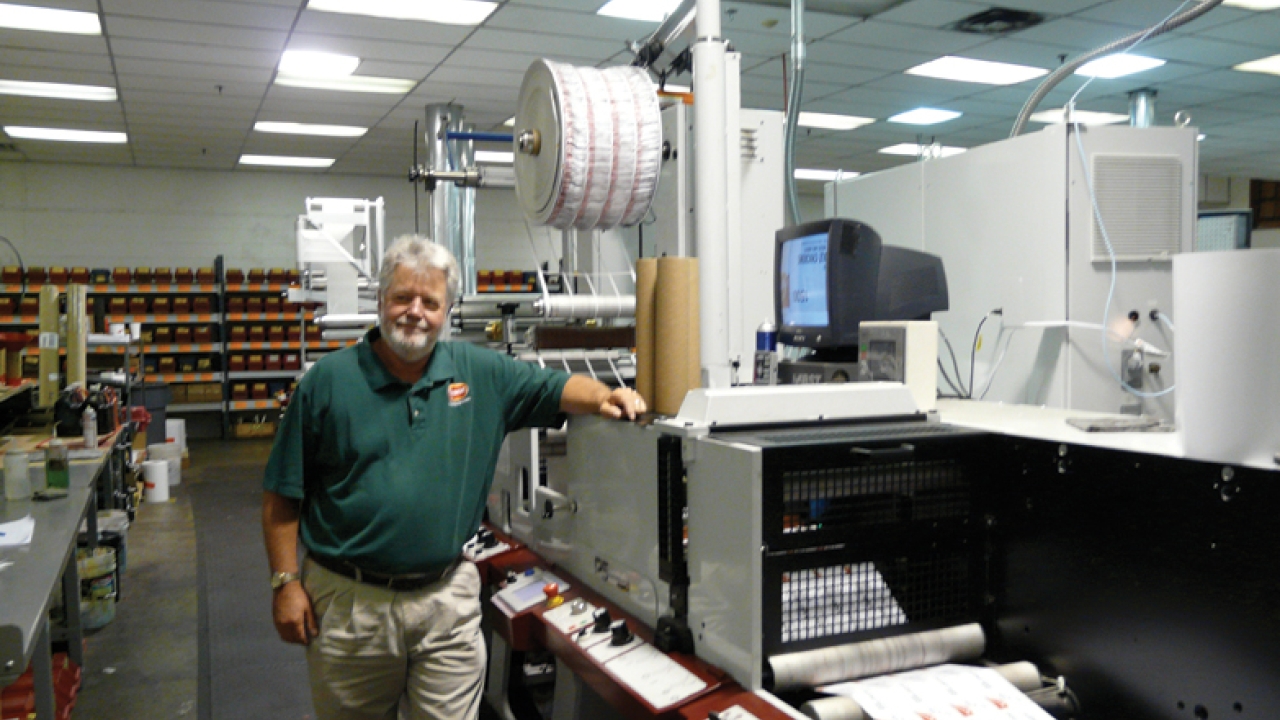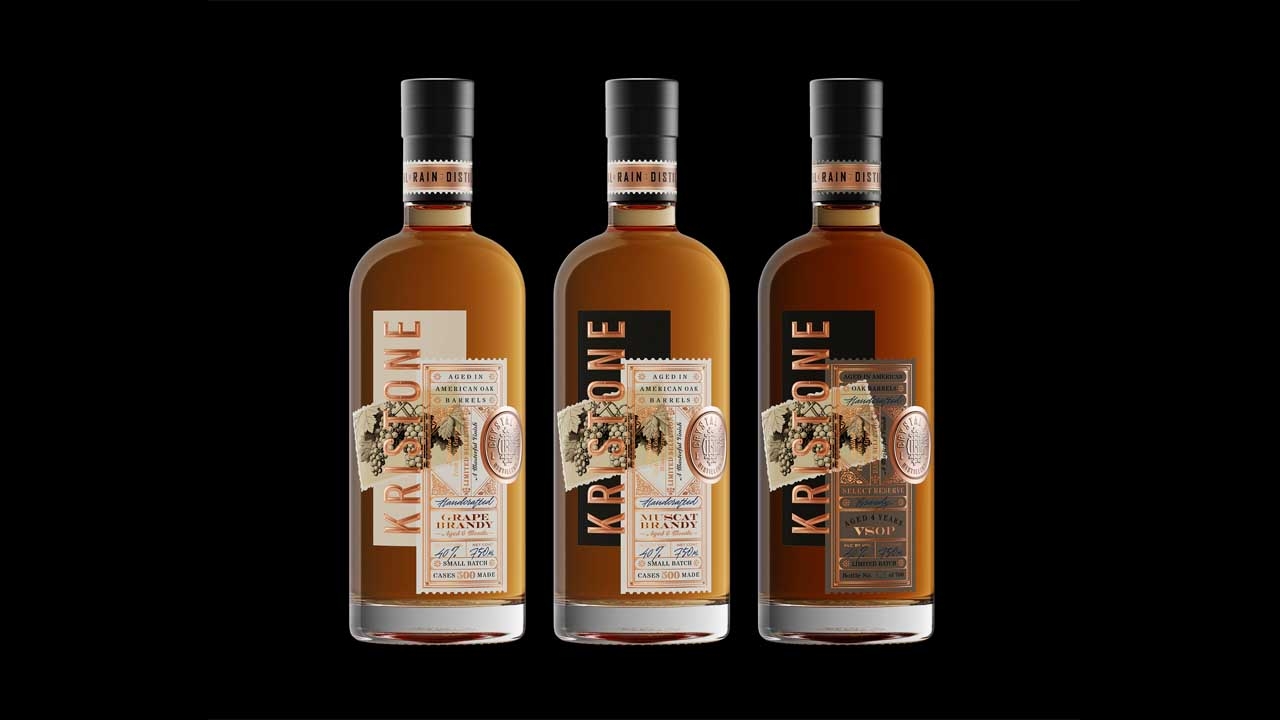Tyson Foods acquires new Mark Andy press

Food processing giant Tyson Foods selects a Mark Andy P5 to boost capacity and improve efficiencies for its in-house print shop. Danielle Jerschefske reports
Tyson Foods, headquartered in Springdale, Arkansas, near Bentonville, is one of the world’s largest food production companies. Founded in 1935, it employs 115,000 people worldwide and is a vertically integrated business producing everything from feedstock to heat and serve meals. It processes a variety of protein items including chicken, beef, pork and other prepared foods like lunch meats, ham, pepperoni and pet foods. It supplies Yum! brands fast food chain restaurants, McDonald’s and Burger King, Walmart and Kroger Foods.
Tyson acquired Valmac Industries including its Tastybird division with multiple locations in 1984, followed quickly with the purchase of Holly Farms in 1989. Subsequently Tyson Print Services was established and the print group moved into its current site that was formerly used for egg packaging (a division sold to Cargill in 1982).
It started producing many of its own pressure sensitive labels for Tyson products on a Mark Andy 820, and a seven inch Comco Cadet. The company later added three Webtron 1000s, and uses four Arpeco Tracker rewinders to slit and rewind rolls for its 70+ plants worldwide. In 2010 the group gained corporate approval to acquire a new Mark Andy Performance Series P5, the mid-range servo model, installing an 8-color water-based system in the spring of this year. Russell Gayer, manager of Tyson Print Services, says, ‘the move shows that the company is committed to in-house printing, that it realizes the benefits of having access to such a valuable internal service.’
Performance wins
Each year Tyson Print Services saves the company over 2 million dollars by producing one third of the company’s label needs internally, proving that an in-house print department can directly impact the bottom line. To continue driving these savings, Tyson needed a new machine to increase capacity without increasing head count, to reduce waste by ganging runs, and increase production by reducing make ready time and improving press speeds.
To obtain approval, Gayer proved that an investment in a new machine would meet corporate goals to increase throughput by 15 percent. Since installing the 13-inch Mark Andy P5 machine, the converter has increased production output by nearly 16 percent compared to the same period last year.
The converter uses material MSI and tracks purchases to calculate these figures. Spoilage has been reduced and uptime improved. Gayer explains, ‘We have more waste on the older machines because we don’t have such long runs and the presses do not have the modern engineering geared towards producing shorter runs profitably.’
The plant’s supervisors and press operators were in charge of selecting the machine. They developed specific criteria to compare machines objectively. The team chose the Performance Series because they felt it is more user-friendly, very intuitive and simple to operate. Its open design allows operators to easily access the printheads without the need for covers, providing better visibility during the run and making changeover time faster from job to job. The single servo drives and automatic registration control provide more consistency in runs from shift to shift. It was also critical that the machine be able to effectively run repeats smaller than 10 inches.
Operations
TPS generally produces three types of labels: direct thermal, semi-gloss and uncoated paper lithographic. Increasingly the company’s marketing arm is shifting from high gloss to a matte finish, in which case the converter utilizes a matte UV coating to save as much as 20 cents per MSI. The majority of process labels are produced with a 150 line screen, although higher screen counts will now be an option with the P5 due to the automatic impression setting system which alleviates over-impression and dot gain.
TPS also has a machine dedicated to over-wrapping labels in a cellophane bag. They’re sent to retailers packed with the product and are applied prior to display in the store Deli. Most of the larger Sam’s Club ‘Daily Chef’ private labels for corrugated boxes are produced here, again shifting from gloss to matte finish for consumer appeal. These labels have an aggressive adhesive with the ability to perform in -70 degrees fahrenheit conditions.
The group’s specialists worked closely with its ink suppliers to test UV varnishes that would consistently give the visual effect desired. After an extensive RFP, Tyson selected Monarch Color as its primary ink supplier in 2004. Initial projections indicated the company would save 12,000 dollars in the first year of the partnership. Upon reviewing the numbers twelve months later, the annual ink spend had been reduced by 40,000 dollars. The additional savings were a result of a reduction of waste in color-matching process and better overall color consistency.
The in-house label converter employs 54 people, 14 press operators and a number of graphics experts. Three print room supervisors oversee day-to-day production within the department. On average, the plant produces 50 million labels each month, and has produced as many as 89 million during peak times, since installing the new Mark Andy P5.
The 13-inch P5 press replaced a 10-inch Webtron, giving the converter instant capacity in width. It produces a multitude of 3 x 10 inch labels for export leg quarter sales, with typical run volumes between 100,000-400,000 labels. Gayer explains, ‘We can produce these extremely well now. We quickly realized benefits both on press and in finishing.’
The hot air dryers, and auto registration, on the Mark Andy P5 press has significantly improved press speeds. Jobs that the older machine was typically running at 350 ft/min are now being run at 500 ft/min or faster. ‘Our operators are extremely pleased with the new press,’ says Gayer.
Besides the training provided by Mark Andy, Tyson enlisted services from FTS (Flexo Trade School) whom it found to be professional and helpful, providing detailed reports for improvements to be made on each shift.
Competitor partners
TPS produces around one-third of the entire company’s demand for corrugated, retail, and on-pack promotional labels. The rest of the company’s needs are met by Omaha, Nebraska-based converting conglomerate York Label, who also purchased a Mark Andy Performance Series press at the beginning of the year.
When Tyson Foods acquired IBP Inc. in 2001, the world’s largest producer of premium chicken, beef, and pork, it used 47 different label converters to service its various food production facilities. After a rigorous process the company adopted IBP’s single source philosophy and has had a strong working partnership with York Label (formerly Industrial Label) since 2003. With York’s multiple locations and advanced machinery, it is an ideal producer of larger volume runs, allowing Tyson to leverage its buying power and reducing spend on materials.
Together the two converters – in-house and outsourced – share best practices and label specs when making decisions on processes, color management and scheduling in order to keep costs down.
Lean
The department embarked on a Lean transformation five years ago. It initiated benchmark measurements to uncover areas needing improvement. The converter was able to minimize downtime and actually switch from a round-the-clock operation to two shifts. The changes allowed the company to realize a 20 percent savings in operating costs.
Its operations teams are dedicated to 5S philosophies and continue to utilize them today. Visual management supports the Lean infrastructure with job routing, staging and production planning. The business uses SAP to streamline its ordering and a house-made program to organize all packaging and label specs. York Label uses a web-based scheduling system linked to Tyson Print Services so that all job orders and their progress are transparent. Tyson Print Services is very pleased with the new investment choice. Gayer says he’s hoping to gain support for further capital investments as his operators continue to improve production numbers and Tyson Foods’ bottom line. While its current Performance Series press is not equipped for hot stamping, foiling and other add-value capabilities, he says that ‘next time’ he would like to have a P Series with all of the bells and whistles.
Pictured: Russell Gayer by the P5 machine
This article was published in L&L issue 4, 2011.
Stay up to date
Subscribe to the free Label News newsletter and receive the latest content every week. We'll never share your email address.


